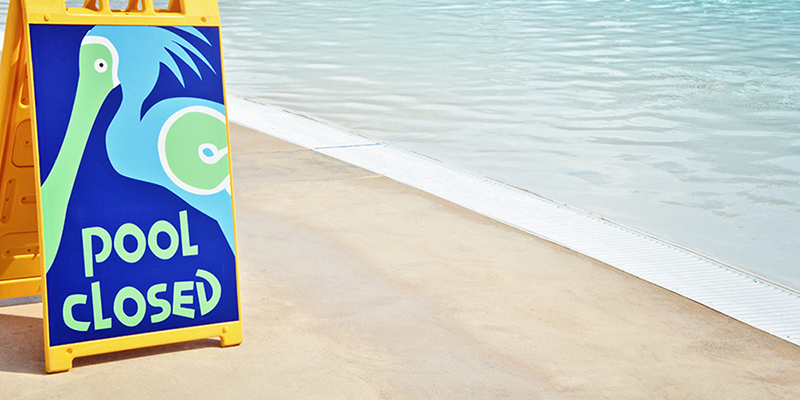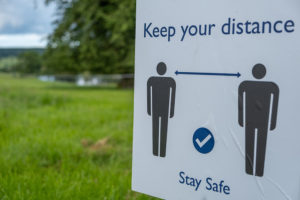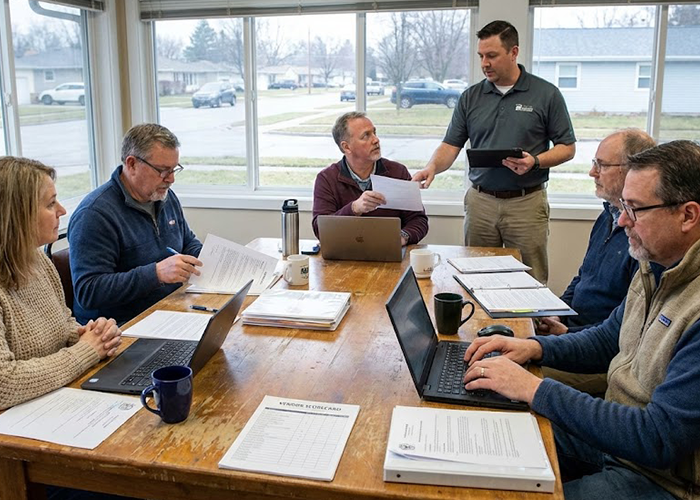When Is The Right Time For Reopening HOA Amenities?

The coronavirus pandemic has forced the world to adapt, and homeowners associations are no exception. As the country slowly starts to reopen, HOAs are left with the problem of whether or not to follow suit. Is reopening HOA amenities now the right decision?
Browse By Category
Sign up for Our Newsletter
The coronavirus pandemic has forced the world to adapt, and homeowners associations are no exception. As the country slowly starts to reopen, HOAs are left with the problem of whether or not to follow suit. Is reopening HOA amenities now the right decision?
Reopening HOA Amenities Amid the COVID-19 Pandemic
With no immediate end in sight for this worldwide health crisis, homeowners associations everywhere are starting to toy with the idea to reopen amenities. It is, after all, within members’ rights to use community amenities like pools and tennis courts.
Reopening HOA amenities may also help boost the mental and emotional health of association members. But, safety remains an important factor that HOA boards must take into consideration.
The Centers for Disease Control and Prevention (CDC) has released guidelines designed to help communities mitigate the spread of COVID-19.
Similarly, the Community Associations Institute (CAI) also published a set of guidelines called “Healthy Communities” that can help HOAs protect residents as they adjust and reopen. It is also worth checking with your State Department of Health and County Health Departments for additional support.
Shielding the HOA from Potential Liability
Liability is a common point of concern among associations when it comes to reopening HOA amenities. This can mainly stem from the association’s purported negligence in reopening amenities or from the association promising the members’ safety.
Homeowners associations and their boards must never make a promise they cannot keep. That includes guaranteeing the safety of amenity users.
Even if the HOA creates a plan and does everything in its power to do so, it can never guarantee that members will not contract the virus while using the amenities. Members can also follow the new rules to a T and still end up sick.
To protect your association from liability, it is imperative to avoid making any such promises. Instead, warn all members that these new guidelines cannot guarantee their safety. If they choose to use community amenities, they acknowledge and accept the risks involved.
Some associations ask members to sign blanket waiver documents to free the HOA and its board from potential liability. Before you decide to take the same route, make sure to consult with your HOA attorney first.
Strategy Tips When Reopening Your HOA Amenities

Not all associations are permitted to reopen common areas and amenities. Before making a decision, check your state or local government rules and regulations for any related provisions.
This includes provisions regarding public facilities such as pools, clubhouses, gyms, tennis courts, and the like.
Once you have the all-clear and decide to reopen amenities, here are some strategy tips you can adopt:
1. Create and Distribute Emergency Rules
Rules exist to maintain order, but they are also designed to keep members safe. Most HOAs must follow standard procedures when creating or amending rules.
But, in some states, HOAs can adopt emergency rules without the need for normal procedures. For instance, in California, associations can enact emergency rules with a maximum effectivity period of 120 days. Sample rules include requiring the use of face masks and limiting the number of people in any given amenity.
In addition to creating these rules, HOAs must put them in writing and communicate them to all members. It is also a good idea to post these emergency rules in every common area or amenity.
Furthermore, you must warn members that the HOA and these rules do not guarantee their safety. Include this disclaimer in all posts and notices.
2. Make Use of an Amenity Booking System
In an effort to limit the number of members at any given time, some HOAs have adopted the use of a booking system. With such a system in place, residents can pick and reserve timeslots for each amenity.
Once a timeslot is full, other residents cannot book it anymore. This will allow your association to control the number of members at each amenity for every time period.
3. Allow Space for Social Distancing
Since the coronavirus passes primarily from person to person through respiratory droplets, social distancing can significantly mitigate the spread of the disease. But, it can be a challenge to practice social distancing, especially in tight or cramped spaces.
As a response, associations must create space to promote social distancing. You can do this by modifying the layout of each space.
Consider removing unnecessary furniture or making use of tape to mark areas where users can stand. In gyms and fitness centers, turn off every other machine or equipment.
4. Adopt a More Frequent Cleaning Schedule
Because the COVID-19 virus can survive on various surfaces for extended lengths of time, HOAs must clean and disinfect amenities more frequently. Make time in your schedule to close down amenities for regular cleaning and disinfection.
Use EPA-registered disinfectants that have been proven to kill the coronavirus. High-touch points, such as doorknobs, handles, railings, light switches, elevator buttons, and the like, must be disinfected at least daily.
If your HOA does not have the resources to clean and disinfect amenities and common areas, consider hiring a cleaning service. Most cleaning companies can come in at regularly scheduled times to accommodate your needs.
5. Provide Sanitizers and Soap
 Proper hygiene is of utmost importance now more than ever. To encourage this, post reminders for residents to wash their hands frequently.
Proper hygiene is of utmost importance now more than ever. To encourage this, post reminders for residents to wash their hands frequently.
On the association’s part, consider installing sanitizer or alcohol dispensers in common areas and amenities. Make sure that soap is also readily available in bathrooms and sink areas.
6. Be Prepared for Change
There is no telling when the pandemic will come to an end. Similarly, no one can know for sure what the future holds. You might reopen the pool one day and end up having to close it down the next.
As such, refrain from sticking to a single approach to safeguard your community and its residents. Instead, monitor the situation on a daily basis and be prepared to make adjustments as instructed by government officials and health experts.
A Safer Environment for All
When it comes down to it, there is no blanket answer as to the right time for reopening HOA amenities. Every community may have its own set of factors that can affect the board’s decision to reopen.
For starters, make sure your local government allows it. Consider the health of your members, including mental and emotional. If you do decide to reopen your amenities, create and communicate rules that residents must follow.
Adopt strategy tips that can help you keep a safe environment. Lastly, remember to protect the association from liability by warning residents that their safety is not guaranteed.
RELATED ARTICLES:
- How To Prevent Crime In Your Neighborhood & Increase Resident Safety
- 6 Tips On How Can HOA Enforce Rules And Regulations
- 11 Ways To Ensure Effective Security In HOA Community
Trending Now
Related Article
Sign up for Our Monthly Newsletter
Sign up below for monthly updates on all HOA Resource














